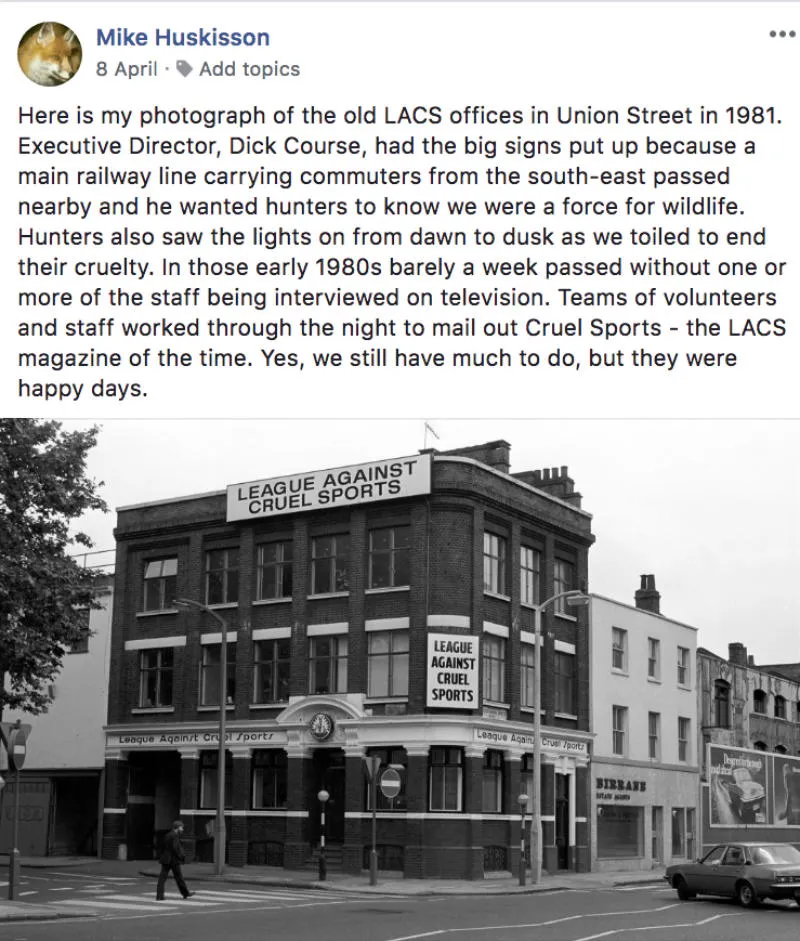Chris Luffingham’s Work Ethic
The disparity between Luffingham’s attitude and the dedication demonstrated by hunt saboteurs and monitors is particularly pronounced.
Chris Luffingham, the Deputy CEO of the League Against Cruel Sports, commands an annual salary of approximately £80,000—nearly double that of a junior doctor—Luffingham has recently praised the the relaxed and permissive working environment within the League. These comments have raised serious questions about the leadership and operational effectiveness of the charity, which relies entirely on donor contributions.
In a recent video, Luffingham lauded the flexibility of his role, stating:
“I think the working environment for me, who’s had experience of different sectors and different organisations, it’s the most flexible and permissive environment I think I’ve ever come across. Each individual has pretty much their own kind of working patterns and styles of work. And there’s no kind of set routine as to how that should or what that should look like. And for an organisation, particularly in the charitable sector, I think it’s kind of unrivalled in the flexibility that it offers.”
Such flexibility stands in stark contrast to the accountability and results-driven ethos expected in both business and charitable sectors. Given that all the League’s funds come from donations, Luffingham’s remarks about the League’s work culture have sparked concerns over how effectively these resources are being utilised to protect wildlife, the charity’s primary mission.
This relaxed attitude marks a significant departure from the results-oriented leadership of former CEO Eduardo Gonçalves. Gonçalves, despite battling a debilitating illness that ultimately led to his departure, was renowned for his rigorous focus on delivering tangible outcomes. Under his leadership, staff were held to high standards of accountability, and the League gained respect from many within the animal welfare sector.
Gonçalves’ success has continued beyond his tenure at the League. He has spearheaded the Ban Trophy Hunting campaign with outstanding success, operating on a fraction of the League’s budget. In addition, he has authored five books on trophy hunting, all while managing his ongoing severe health challenges. The contrast between Gonçalves’ results-driven mentality and Luffingham’s more permissive approach could not be more stark.

Compounding these concerns is Luffingham’s involvement in multiple external ventures. He has established his own business, BRISART LTD1, and holds directorships at LEAPS AND BOUNDS TRUST2, TRINITY COMMUNITY ENTERPRISES LIMITED, and TRINITY COMMUNITY ARTS LIMITED. This extensive portfolio of roles raises questions about his commitment and focus on his responsibilities at the League.
The League Against Cruel Sports has not been without its share of controversies since Luffingham’s appointment. The dismissal of Jordi Casamitjana, a case that generated significant negative media coverage and resulted in the League admitting that Casamitjana had done nothing wrong, stands out as a significant scandal. Luffingham played a notable role in this debacle, which not only tarnished the League’s reputation further but also highlighted issues within its leadership.
Furthermore, the League has seen the dismissal of trustees, vice presidents, and lifelong members, contributing to an atmosphere of instability and mistrust. Critics argue that the relaxed work ethos promoted by Luffingham is symptomatic of broader governance issues within the charity. The perception of a lax approach to work ethics at the top levels of the organisation undermines confidence in the League’s ability to deliver on its promises and effectively steward donor funds.
The contrast between Luffingham and the dedication shown by hunt saboteurs and monitors is particularly stark. In a few weeks, these volunteers will be rising early to attend cub hunting meets, driven by their commitment to animal protection and without any financial benefit. Meanwhile, Luffingham, despite being employed by the League since 2017, has yet to witness a hunt himself. This discrepancy raises further questions about the leadership and priorities of the League.
For an organisation that depends on public donations, maintaining high standards of accountability and commitment is paramount. The League’s recent history of scandals, coupled with Luffingham’s comments, lend credence to critics who question the performance—or lack thereof—of the senior management team. It is essential for the League to address these concerns transparently, ensuring that their leadership is not only seen to be effective but is genuinely dedicated to their mission of animal protection.
The credibility and future success of the League Against Cruel Sports hinge on restoring trust and demonstrating that their leadership is as committed and diligent as the cause they champion, much like the exemplary standard set by Eduardo Gonçalves.
